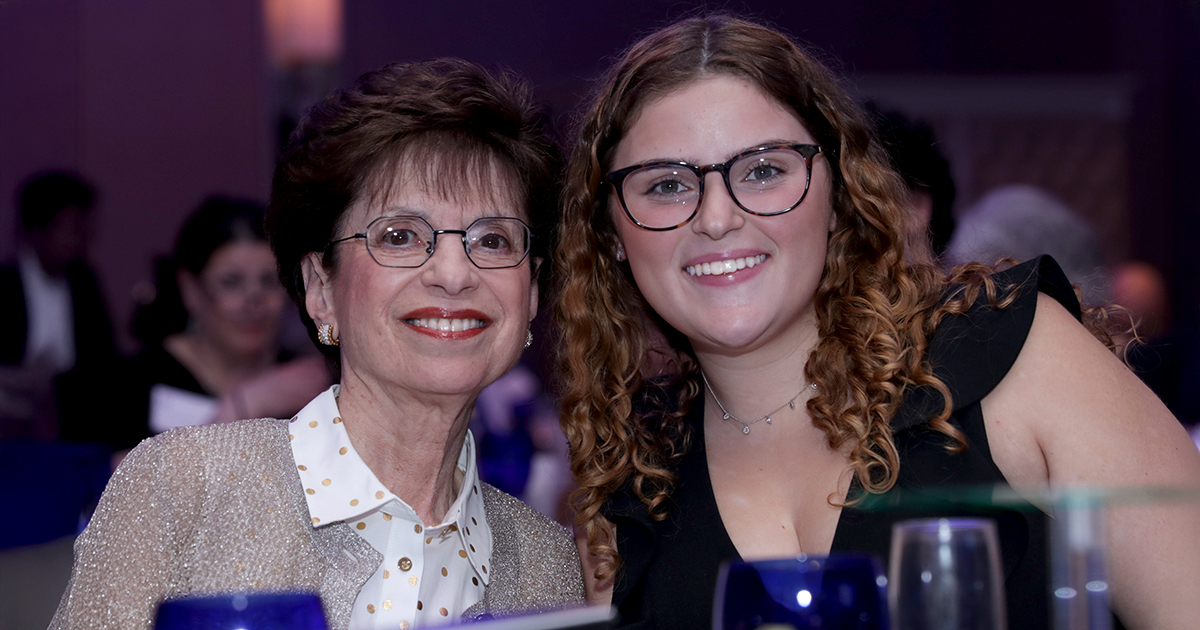“The conversations were always going to be important, but now, sadly, they are urgent,” said Stephanie Butnick, host of the “Unorthodox” podcast, kicking off Hadassah’s two-day symposium on the topic of Zionism.
“In our grief, we almost considered postponing this symposium, which has been planned for months,” said Hadassah President Rhoda Smolow. Instead, Hadassah opted to embrace this meaningful opportunity to discuss Zionism in all its complexities and “now, especially now, support Israel,” she said.
Day one of the symposium highlighted three women trailblazers, Zionists breaking barriers in their fields. Of course, with war directly impacting the lives of these three Israeli women, the conversation turned to the current situation.
The best path forward is to use our collective voices to educate our own friends and neighbors, said Viktoria Kanar, co-founder of Re-Fresh Global, a startup that develops raw manufacturing materials from textile waste. “I’m so convinced that we cannot do it alone and we should not do it alone as Jews. We must do everything that we can to get people on our side,” Kanar said.
Shiri Fein Grossman, who works to create bridges between the Israeli tech ecosystem and the Abraham Accords countries, also stressed how important it is for Zionists to speak out right now. “We tremendously need your support here. We need you to go stay connected. We need you to reach out to people,” Fein Grossman said.
Prof. Dina Ben-Yehuda, MD, head of the Hadassah Medical Organization’s Department of Hematology and the first female dean of the Hadassah-Hebrew University School of Medicine, was visibly shaken by the events of the last few weeks. The daughter of a Holocaust survivor, she never thought twice about being a Zionist because “it’s in my blood,” she said. When asked how other young women could become trailblazers in their own right, Prof. Ben-Yehuda simply said, “Believe you can.”
The first day of the virtual program featured four panels. In addition to the session on trailblazers, discussions focused on the effects of social media on antisemitism and anti-Zionism, what it’s like to be both a Zionist and trendsetter and the intersection between Zionism and the LGBTQ+ community.
There’s a lot of misinformation online about Zionism, particularly in light of the Israel-Hamas war, panelists said. Remember, said Mosheh Oinounou, founder of Mo News, a social-first news organization, “the loudest voices in the room do not represent the majority.”
It is important for Zionists to be part of the conversation on social media when something doesn’t sound right, said Emily Schrader, senior correspondent for Ynetnews and one of Hadassah’s 18 American Zionist Women You Should Know. “Engage wisely, but engage,” Schrader said. “Interact as much as possible, because even the smallest interactions, liking a post or leaving a comment, can actually make a difference.”
The best approach is to know your facts ahead of time and try to keep emotions out of it, said Moti Ankari, a luxury lifestyle fashion blogger with a big online following. “I hate that we have to defend it every other day, but here we are,” Ankari, born in Brooklyn to Israeli parents, said of his passion for Israel. “It’s just in me, it’s just who I am. I don’t have to say I’m a Zionist to tell people that I’m a Zionist.”
In the final session of the day, moderator Rabbi Rachel Marder, associate rabbi at Congregation Beth El in South Orange, NJ and another of Hadassah’s 18 American Zionist Women You Should Know, asked her panelists, “how can we come together as a queer community and integrate our Zionism?”
“Finding community and being comfortable finding multiple communities,” said Toby Klein, program manager for A Wider Bridge, noting it’s difficult to find everything you are looking for in one place.
“It’s hard and it’s challenging to be who you are,” said Hen Mazzig, an award-winning Israeli author, writer, speaker and digital influencer, noting that coming out as a queer person was the best thing he’s ever done. Similarly, he can’t imagine hiding his Jewish identity or Zionism, he said.
“There’s room for you in this movement,” said Samantha von Ende, executive director of the Amicus Institute for Governance. “To help define it, to help be a loud voice for it.”
“There’s room for all of us,” Rabbi Marder added.
Read more about Part 2 of Hadassah’s Inspire Zionism symposium
Read more about our panelists and watch our session on Israel in the media



.svg)





